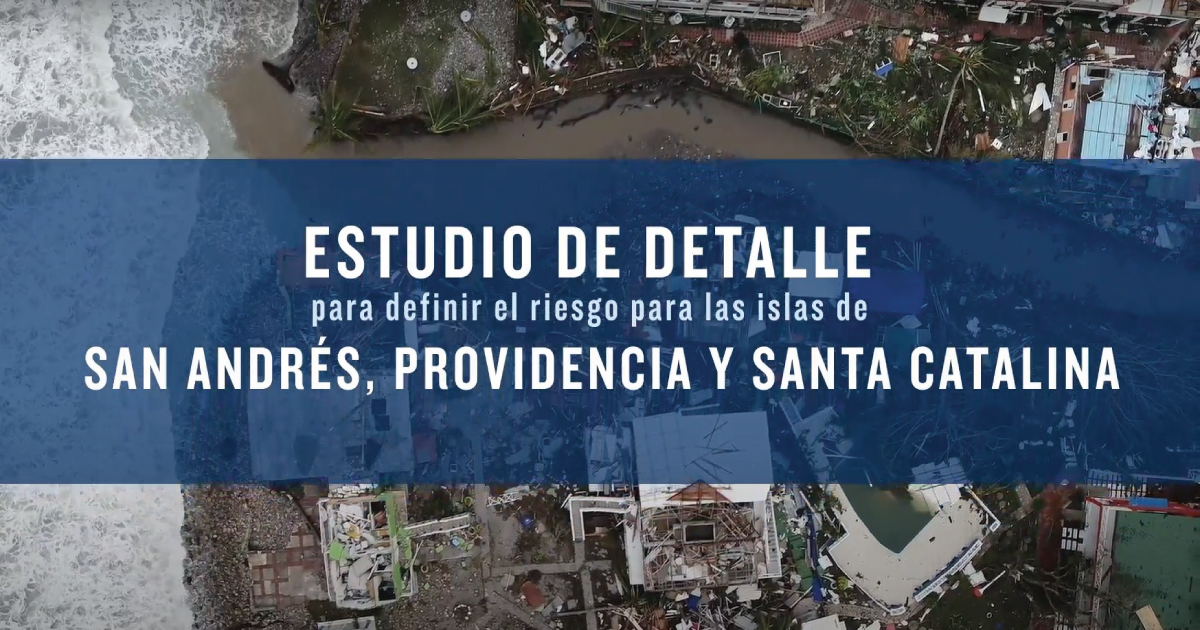
21 Dec Building solutions for the archipelago: climate change mitigation and adaptation
A new Colombian study shows the substantial risk of extreme events in San Andrés, Providencia and Santa Catalina, and mechanisms to improve their management
A year after the disaster caused by Hurricane Iota in the Archipelago of San Andrés, Providencia and Santa Catalina, the results of the Detailed study to define risk for the islands of San Andrés, Providencia and Santa Catalina facing hurricanes in the most probable categories have been presented. This cutting-edge study maps and cross-references the physical and social vulnerabilities of the Archipelago in order to strengthen risk management and cooperation between academia and public entities.
Knowing and understanding with precision the threats that emerge from hurricanes for populations, infrastructure, and ecosystems, is crucial for informed decision-making. This innovative study measures and models the physical dimensions of hurricanes, such as urban flooding caused by rain, winds, and coastal flooding, identifying that 70% of San Andrés is highly vulnerable to these extreme events, in terms of both the physical dimensions of the hurricanes themselves and the social conditions of exposure, fragility and adaptive capacity and resilience on the island, due to the existing types of housing and drainage systems.
Thus, this analysis offers key inputs for future risk management, as well as for the reconstruction process currently underway on the island of Providencia. It highlights the need for public policies that generate consciousness in the populations of the Archipelago regarding this type of event, for example, simulations. The study also permits a risk evaluation in monetary terms, facilitating the creation of a national or regional investment fund with the necessary resources for mitigation and adaptation mechanisms facing the risks identified.
Undertaken in the framework of a cooperation agreement between the Coralina Corporation, the Universidad Nacional de Colombia –Medellín and Caribbean sites–, and the Corporation Center of Excellence in Marine Sciences CEMarin, this study was conducted by an interdisciplinary and interinstitutional team, with a vital role for the communities of the Archipelago in the generation of information on their social conditions. The results were shared by Dr Andrés Osorio, Executive Director of the CEMarin and Professor at the Universidad Nacional de Colombia, in the virtual forum The post-disaster environmental perspective: knowledge, recovery and ecological restoration in Seaflower. The complete presentation is available in English here.


